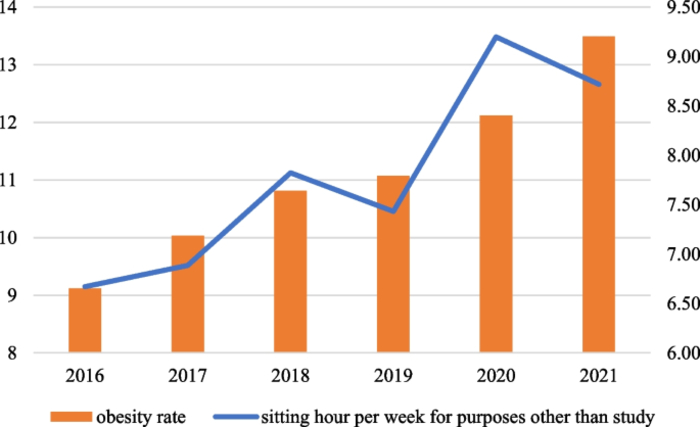The COVID-19 pandemic has been challenging for everyone, but recent studies highlight a particularly alarming consequence for our youngest generation: a significant rise in childhood obesity. This worrying trend, exacerbated by the pandemic, could lead to lifelong health issues for the affected children.
The Pandemic Effect: A Surge in Childhood Obesity Rates
A study by the American Academy of Pediatrics analyzed over 500,000 pediatric visits from January 2019 to December 2020. The results were stark: obesity prevalence increased from 13.7% to 15.4% from June to December 2020, with the most noticeable rise in children aged 5 to 9 years. This increase was more pronounced in Hispanic, non-Hispanic Black, publicly insured, or lower-income patients, highlighting a deepening of preexisting disparities.

Long-term Health and Economic Costs
In the UK, a similar trend was observed. A study found a 45% increase in obesity prevalence during 2020-2021 among children aged 4-5 years, with the impact twice as high in the most deprived areas. While obesity rates in younger children returned to pre-pandemic levels the following year, the increase persisted in older children. The study estimates that this will result in an additional £800 million in healthcare costs over their lifetimes for conditions like type 2 diabetes and heart disease.
The Underlying Causes
The increase in childhood obesity during the pandemic is attributed to several factors. Lockdowns and restrictions led to reduced physical activity and a greater reliance on processed, calorie-dense foods. Families also faced challenges like managing virtual schooling and disrupted routines, which are known risk factors for weight gain.

Implications for the Future
The pandemic’s exacerbation of the childhood obesity epidemic poses serious concerns. Not only does it increase the risk of physical health issues like heart disease and diabetes, but it also impacts mental health, self-esteem, and social wellbeing. Additionally, the widening disparities in obesity rates among different racial, ethnic, and socioeconomic groups are particularly troubling.
Tackling the Challenge
Addressing this surge in childhood obesity requires a multifaceted approach. This includes promoting healthier diets, encouraging physical activity, and providing targeted support to disadvantaged communities. It is crucial to implement policies and initiatives that address these issues holistically, considering the long-term health and economic impacts.
The COVID-19 pandemic has had a far-reaching impact on public health, with childhood obesity emerging as a significant concern. The long-term effects of this trend highlight the need for urgent action to reverse these worrying patterns and support the health and wellbeing of our children.
More Like This: The Medibank Cyber Attack 2024: Russian Sanctioned Over Australia’s Worst Data Breach



GIPHY App Key not set. Please check settings